A year in review – our most read and shared in 2022
This year has been another challenging one for many around the globe. The tail end of the COVID-19 pandemic and the economic downturn that followed in its wake, the war against Ukraine, political coups and instability, and the growing climate crisis are among the challenges that have exacerbated fragility and fueled conflict in many parts of the world.
But there are causes for hope too, in the incredible dedication of our national and international partners who continue to work toward peace and sustainable development through reforms and putting in place effective oversight of police, military, and other parts of the security sector. It’s not easy work, and done right requires the participation of stakeholders from the Government, security sector institutions, civil society, and the media. As our Acting Director Mark Downes notes, “change happens slowly. In many countries it requires generational reforms.”
This year, as always, a large part of our work is distilling and then widely sharing our analysis, research, policy, and operational knowledge to support SSG/R initiatives at every level.
As we bid farewell to 2022 we want to share a selection of our most read and shared knowledge products this year, with sincere thanks to the partners and contributors whose experiences, expertise, and skills were essential to their creation.

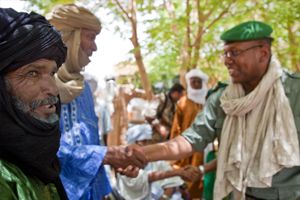
Security sector reform and the prevention of violent conflict
The prevention of violent conflict has traditionally been one of the core aims of security sector reform. Ineffective, poorly managed, or unaccountable security and justice institutions fuel grievances and mistrust in the government, which in turn drives unrest and conflict. Locally-led, inclusive reforms and good governance of the security sector can be an effective tool for violent conflict prevention. Check out this list of resources on SSG/R as a tool in the prevention of violent conflict, including a podcast featured at the Fragility Forum 2022.
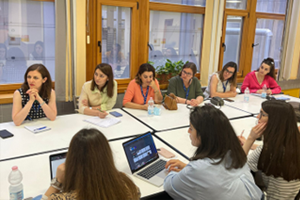
Preparing tomorrow’s leaders of cybersecurity
DCAF’s annual initiative, Young Faces, brings together dynamic, forward-thinking young people aspiring to build their expertise and contribute to new thinking in cybersecurity. In this article we follow the 2022 Young Faces at Eurodig, where civil society, private sector, technical IT experts, government, and academia gather together to talk about innovatives and challenges in cybersecurity in Europe. The Young Faces had the opportunity to present their own research and get feedback from renowned cyber experts.
"I wanted to be part of DCAF Young Faces because of the many violations of digital rights in my region that are considered minor crimes or even sometimes not considered a crime at all." - Oliver Risteski
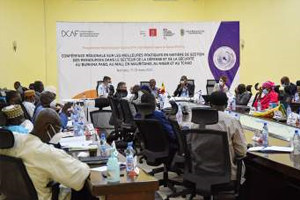
Introducing better oversight on spending and resource management by police and armed forces in the Sahel
Get insights from Oswald Padonou, DCAF’s Head of office in Mali, on how poor planning, bad accounting practices, waste, and corruption all represent a risk to a country’s stability and development. He’s the author of the manual “Enhancing Financial Oversight of the Security Sector in the Sahel”.
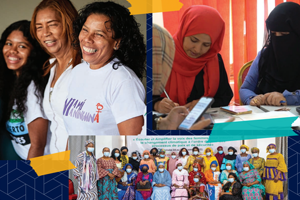
Women speak: the lived nexus between climate, gender, and security
Women often bear the brunt of conflicts over land and natural resources, climate-related displacement, and gender-based violence. With climate issues garnering attention in peace processes, peace building policy, and security sector reform, this is a critical moment for a gender-climate lens to be included in countries’ peace and security processes. Sixty-eight women’s rights organizations from Colombia, Mali, and Yemen came together to contribute to this set of policy recommendations to guide international and national environmental and peacebuilding policy and programming.
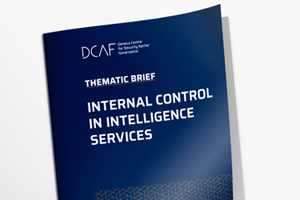
Internal control in intelligence services
This condensed thematic brief delivers ten practical recommendations to strengthen internal control in intelligence services in the Euro-Atlantic area. It emphasizes that internal control is as important as external oversight in ensuring that intelligence services act in accordance with the rule of law and with respect for human rights.
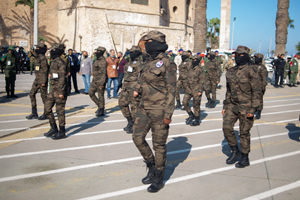
Sovereignty, responsibility and reform: navigating the complexities of hybrid security orders
In March 2022, DCAF and the Crisis Response Council hosted a closed-door workshop with a select group of experts on hybrid security orders. They discussed managing hybrid actors, the political economy of violence, the role of international actors and the state, and the need to harmonize policy tracks in transitional processes, especially in the Iraqi, Yemeni and Libyan contexts. This post-conference report presents some of the key discussion points and summarises the experts’ recommendations.
This year our online community has grown to over 46 000 members who follow us daily on Twitter and LinkedIn and YouTube.

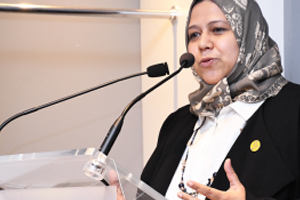
Change maker Muna Luqman: a vision for peace in Yemen that combines aid, community, and security
“Working with men in guns on the battlefield is the old school way of doing things.” - Muna Luqman
Muna Luqman was a finalist for the 2022 Women Building Peace Award. We talked to her about her vision for peace in her home country of Yemen and how she has tried to make a difference and plant the seeds for sustainable peace within local communities.


Sharing experience and knowledge in police reform processes
We were honored to welcome General Luis Ernesto Garcia Hernández, Head of the Colombian National Police Planning Department to discuss the transoformational reform process that the Colombian National Police launched in 2021. The goal is to build trust with the civil society and increase both the quality of policing, and the confidence of the population the police service, through a series of short, medium, and long-term initiatives that promote accountability and citizen participation. General Hernández shared lessons learned from the ongoing process, especially with regard to navigating political and institutional changes, and ensuring a link between police reforms and decision-making in the then new Colombian Government.

Parliamentary oversight of the security sector in Liberia
Liberia is Africa’s oldest republic. With the support of UNDP Liberia, we gathered former and current legislators and invited them to share their feedback, exchange good practices and lessons learned.

We started our podcast channel on Anchor in 2022 and already have nine episodes available that have been enjoyed by listeners in 17 countries. Here is their favourite episode from this year:
SDG 16, security sector governance and the role of parliaments in times of crisis
In this episode, we talk with the authors of DCAF’s new SSR Paper about the challenges posed by the COVID-19 pandemic for parliaments and how this hindered oversight of the security sector and affected the rule of law. We will also look at some of the recommendations on how parliaments can enhance their oversight role and contribute to SDG 16, calling for peace, justice, and strong institutions.
Thanks for taking a moment to make the end of 2022 and we look forward to sharing more with you in 2023. Don’t miss a thing by following us on Twitter, LinkedIn and YouTube.
Happy New Year!
 Share on Facebook
Share on Facebook Share on Linkedin
Share on Linkedin Share on Twitter
Share on Twitter